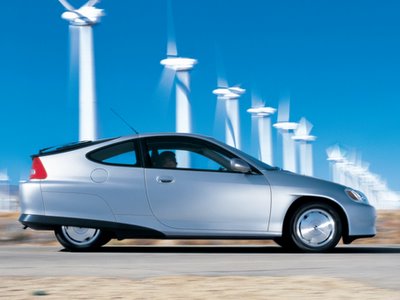Bigger Vehicle, Bigger Tax Credit--Does It Make Sense?
Tax credits are intended to encourage specific kinds of behavior by subsidizing them. The linked article in Wired poses an interesting economic issue, one deeply intertwined with politics. It seems that tax breaks designed to reward purchasers of fuel efficient vehicles fail to correlate exactly with a vehicle's miles per gallon. Thus, consumers who purchase some SUVs will receive larger tax credits than purchasers of hybrids, according to a study done by the American Council for an Energy Efficient Economy.
The amount of each tax credit is computed according to a formula, which takes into account a vehicle's improved fuel economy, measured against competitors in its class. Thus, the 57 mpg Honda Insight hybrid automobile offers a $1,450 tax credit, while buyers of the 36 mpg Ford Escape hybrid SUV receive a $2,600 credit.
The ACEEE's own research shows that the correlation between miles per gallon and the size of the tax credit is in general positive. The logic for a greater credit of the Escape is also well grounded, since the Escape will save more gallons of gas each year for its purchasers than will the Insight. What's the problem?








0 Comments:
Post a Comment
<< Home